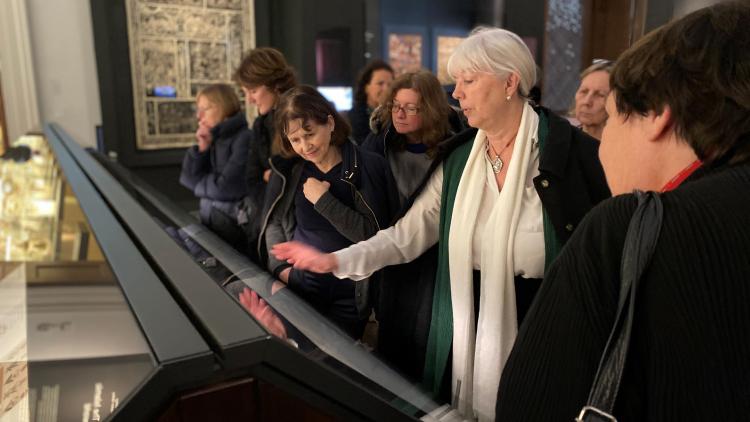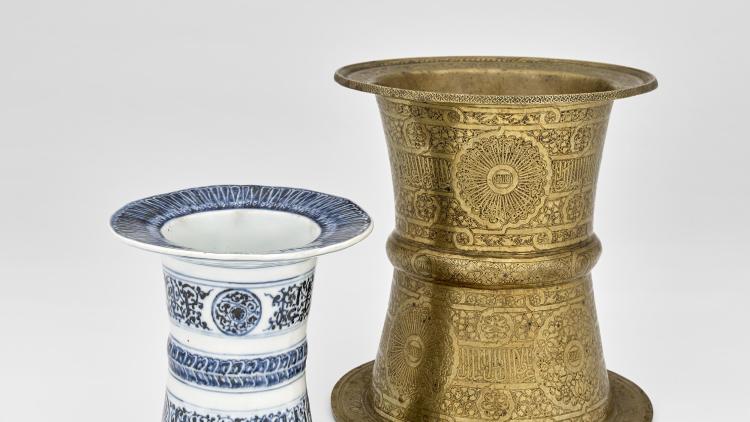How I became a travel writer in Vietnam: An interview with SOAS alum Joshua Zukas


Joshua Zukas is a Vietnam-based travel writer and SOAS graduate. In this blog, we discuss his journey from studying linguistics and languages to becoming a published travel writer.
How did you get into travel writing?
After graduating, I moved to Vietnam, where I've been based for about eleven years. I always knew I wanted to work in travel, but I didn’t initially see myself as a travel writer—it was more of a dream. I was fully aware of how competitive and unstable a career like this can be. I began working in travel in Hanoi, mainly in product development and marketing. I also did some blogging on the side when it was relatively new and social media influencing hadn’t yet taken off.
The linguistics course at SOAS introduced me to dozens of languages from different parts of the world, and this helped me realise what I really wanted.
I soon realised that working for travel companies wasn’t for me, but I used my copywriting portfolio and blogging experience to pitch stories to publications, and I slowly transitioned into travel writing. Now I do this full-time. I make a distinction between travel bloggers who self-publish and travel writers who work with editors and publications. I don’t self-publish because I believe that when I have other people's eyes on my words, it results in better quality and more thoughtful pieces.
The linguistics course at SOAS introduced me to dozens of languages from different parts of the world, and this helped me realise what I really wanted. Inspired by the compelling careers of the SOAS academics, I decided to focus on one region, at least to start with. South East Asia was the place, and my degree later enabled me to specialise in the countries I was drawn to: Indonesia and Vietnam.
Do you have a piece of work you're most proud of?
I'm proud of a few projects, but one I'm particularly excited about is an upcoming Bradt guidebook, set to be published next summer. Bradt has an interesting history in Vietnam. They were the first to publish an English-language guidebook to the country in the early '90s, long before Lonely Planet took an interest. They are known for covering less popular countries and giving writers the freedom to dive deeper. As Vietnam welcomed more visitors—and became more touristy—Bradt withdrew from the country.
Next year, Vietnam will celebrate 50 years since the end of the war, and I felt that this would be a good time for Bradt to revisit the country. I was also keen to publish an in-depth and insightful guidebook that peeled back the tired layers of stereotypes and portrayed Vietnam for the country that it is. I have no interest in perpetuating the image of a colonial heirloom ravaged by war, or pristine rice paddies tended to by conical hat-wearing farmers. I’d rather comprehensively explore Vietnam’s dynamism and complexity, as well as write honestly about the issues the country faces.
I have no interest in perpetuating the image of a colonial heirloom ravaged by war, or pristine rice paddies tended to by conical hat-wearing farmers. I’d rather comprehensively explore Vietnam’s dynamism and complexity.
Other pieces I’m proud of include a feature for Wallpaper*, where I explored Ho Chi Minh City through architecture and design, and an article for The Economist on Vietnamese modernism. The latter was particularly interesting because Vietnamese modernism, which developed in the 1950s-70s, blends global modernism with traditional Vietnamese techniques. Unlike Western modernism, which isn’t suited to Vietnam’s tropical climate, the country's architects incorporated bio-climatic ideas from its vernacular, resulting in porous buildings that cooled naturally. This was Vietnam’s first post-colonial and indigenous style of architecture, and my time at SOAS helped with the necessary vocabulary to frame the story.
When did you discover a passion for languages?
Before SOAS, I had a few different jobs. I qualified as an English teacher and taught in different parts of the world. Later, I worked for a small charity in central Vietnam as a volunteer coordinator where I matched international and local English teachers. Through work like this and learning languages in different countries, I discovered an interest in the mechanics of language. I wasn’t particularly good at them at school, but when immersed in the countries, I found I was better than I thought—and I enjoyed it.
When I was looking at different linguistics courses in the UK, the SOAS course stood out. Most UK linguistics programmes seemed too Eurocentric.
After spending some time in Asia and understanding how different languages are compared with those in Europe, I deepened my interest in language and linguistics. That’s what led me to study Linguistics and South East Asian Studies. When I was looking at different linguistics courses in the UK, the SOAS course stood out. Most UK linguistics programmes seemed too Eurocentric.
I studied four languages at SOAS: Vietnamese, Indonesian, Burmese and Persian. Vietnamese has obviously been hugely helpful. Without that, it would be very difficult to do the job that I do now. Indonesian was helpful as well, but more from a travel point of view. Burmese and Persian were only beginner classes. I don't speak either language, but it was fun to try and get my head around them.
What did you learn from your time at SOAS?
SOAS excels at challenging the status quo by giving students the tools to question received wisdom. Through linguistics, SOAS opened my mind to understanding the world in a non-Eurocentric way—and this goes far beyond language. Teachers helped me broaden my outlook on how human language functions, challenging accepted linguistic theories that were based mainly on European languages. Chomsky provides a good example. Considered the father of modern linguistics, he got a lot of things right, but he based his ideas on a small number of well-studied languages, like English and Russian. His theories sometimes fall flat when faced with non-European languages.
The linguists at SOAS, both past and present, were able to challenge those ideas and contribute to more universal theories of language, which is essentially what I think linguistics should be trying to do. This mindset maps to travel writing—I can try to resist getting bogged down by the language and ideas developed by misinformed or presumptive Westerners. I can also challenge my own biases and preconceptions, resulting in more truthful work.
One tangible way that my degree at SOAS helped is that I was introduced to key concepts like Orientalism and the decolonisation of language. Getting my head around these ideas, I think, helps me write more sensitively and inclusively. In travel writing, it’s easy to fall into the trap of romanticising the country that you’re covering. For example, it’s common to describe colonial architecture as ‘beautiful’ or ‘romantic’ while ignoring the associations with injustice and exploitation.
My time at SOAS helped me to understand how this language can be destructive and insensitive. When I’m editing work from other writers, a big red flag for me is the romanticisation of a country's colonial history.
My time at SOAS helped me to understand how this language can be destructive and insensitive. When I’m editing work from other writers, a big red flag for me is the romanticisation of a country's colonial history. If I see this, I am quick to point it out and explore with the writer ways to reframe the narrative in a more honest and nuanced way.
What is your career advice to students?
Regardless of what part of the world interests you, whether it be Asia, Africa or beyond, there are plenty of opportunities. As a fresh graduate, the best thing you can do is go out and find them.
SOAS is a small institution, so you can develop close relationships with your teachers, which is rare at other universities. I became friendly with my teachers early on, and I'm still friends with a handful of them today. I'm able to utilise those connections in my work, as I reach out to the relevant academic when I need an expert opinion for a story I’m working on.
Many of my friends who went to other universities didn’t start developing their networks until later in their careers. At SOAS, you start building your network from your undergraduate days. It begins early—and it stays with you.
This interview has been edited for length and clarity. Header image credit: Silver Ringvee via Unsplash
Joshua Zukas
Joshua Zukas is a graduate of SOAS's BA Linguistics and Southeast Asian Studies programme, and a writer specialising in travel, culture, history, architecture, and design. His work has appeared in publications including Lonely Planet, The Economist, and Michelin Guide.





